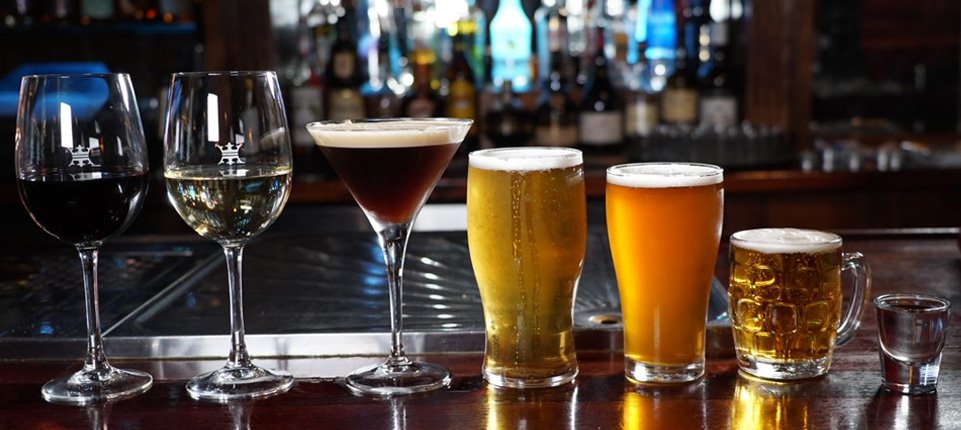February 3, 2021
Every alcoholic drink increases your risk of cancer

Thanks to growing research on the link between alcohol and cancer, we now have strong and consistent evidence that alcohol can cause cancer.1
Alcohol is estimated to have caused 740,000 cancer cases globally in 2020 alone.1 There is strong evidence alcohol can cause cancers of the breast, liver, colon, rectum, oropharynx, larynx and oesophagus.1
Even low levels of drinking can increase your risk.1
Despite the strength of this evidence, media reporting often contains conflicting messaging on the health effects of alcohol. This means that many Australians are still confused about the risks of drinking.
Numbers show the damage
A study by the National Drug Research Institute (NDRI) found that more than a third (36%) of alcohol-related deaths in 2015 were due to cancer.2 A total of 2106 Australians died from cancer linked to alcohol consumption.
Breast cancer was the most common cause for women and bowel cancer the most common cause for men.2
Researchers from this study explained that many of these cancers were linked to low or moderate drinking levels.3 Because the risks depend on the amount of alcohol you drink, the risk of these cancers is higher when drinking increases.1, 3
That’s not to say drinking alcohol will definitely give you cancer but it does increase your risk. Cutting down or not drinking can significantly reduce that risk.4
Chemical reaction damages our DNA
How alcohol affects people’s health is complex.
It affects many parts of the body and the impact will depend on factors such as genetics, diet and lifestyle. All these things can influence the level of cancer risk for each person.
When we drink alcohol, our body needs to metabolise the ethanol. This is a chemical compound found in all types of alcohol. A bi-product called acetaldehyde is created during this process and this chemical reaction damages our DNA.5 This process mainly happens in the liver but also occurs in the mouth.
Alcohol also interferes with hormones. Hormones tell our cells to do certain things such as grow and divide.
It has been found that alcohol increases levels of oestrogen in the body. This oestrogen-driven growth in cells is thought to be a key factor in the development of hormonal-based cancers, such as breast cancer.6
No amount of alcohol is good for you
Many studies have shown some health benefits from moderate or light drinking. However, more recent studies have challenged this.
One large global study looked at drinking levels and health effects in 195 countries between 1990 and 2016. It was found that even though light drinking could safeguard some people against heart disease, the potential risks of developing cancers and other diseases far outweighed any potential benefits.2
Other studies have suggested health benefits from drinking wine – particularly red wine. However, no research has shown a direct link between better health and drinking alcohol.3
Studies designed to compare the health and life-expectancy of moderate drinkers with non-drinkers have been shown to be flawed.7 These studies claimed moderate drinkers had better health because of their drinking. The reality is drinkers were being compared to non-drinkers, many of whom had given up drinking alcohol because of pre-existing health issues.7
Researchers analysed 87 of these studies and found 74 had flawed study designs and the remaining 13 found alcohol had no health benefits.7
Changing how we think about alcohol
Understanding the long-term health effects of alcohol can be confusing because of the many conflicting messages we receive. However, the research is clear – there is no conclusive evidence linking alcohol consumption with improved health.
However, research has confirmed a direct link between alcohol and cancers of the mouth, breast and throat. This risk is increased with any amount of alcohol.4
If you’re looking to lower your alcohol consumption, the National Health and Medical Research Council (NHMRC) guidelines recommend having no more than 10 standard drinks per week and no more than 4 standard drinks a day.
More information:
A drink can be much more than a standard drink.
More information
Related Drug information directory reviews
- National Health and Medical Research Council. Australian Guidelines to Reduce Health Risks from Drinking Alcohol. Canberra: Australian Government; 2020.
- National Drug Research Institute. Bulletin 16 - National Alcohol Indicators. Perth: Curtin University; 2018.
- National Drug Research Institute. Media Release: Alcohol causes nearly 6,000 Australian deaths in one year, a third from cancer: Curtin University; 2018 [cited 2020 January 22].
- Stockwell T, Zhao J. Alcohol's contribution to cancer is underestimated for exactly the same reason that its contribution to cardioprotection is overestimated. Addiction. 2017;112(2):230-2.
- Garaycoechea JI, Crossan GP, Langevin F, Mulderrig L, Louzada S, Yang F, et al. Alcohol and endogenous aldehydes damage chromosomes and mutate stem cells. Nature. 2018;553(7687):171-7.
- Maniyar R, Chakraborty S, Suriano R. Ethanol Enhances Estrogen Mediated Angiogenesis in Breast Cancer. J Cancer. 2018;9(21):3874-85.
- Stockwell T, Zhao J, Panwar S, Roemer A, Naimi T, Chikritzhs T. Do “Moderate” Drinkers Have Reduced Mortality Risk? A Systematic Review and Meta-Analysis of Alcohol Consumption and All-Cause Mortality. Journal of Studies on Alcohol and Drugs. 2016;77(2):185-98.